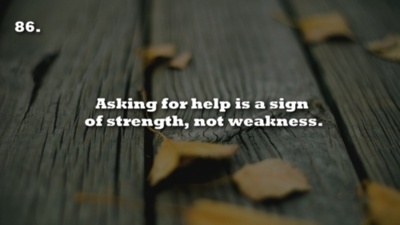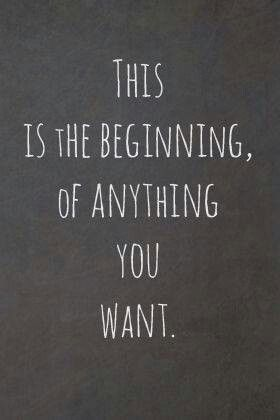ED Awareness
20 Things That Everyone Needs to Know About Eating Disorders
Submitted by nedic blogger on Mon, 01/25/2016 - 15:31.png)
Both personally and professionally, I’ve spent much of my life dealing with eating disorders – starting with my own 5 year, near-fatal battle with Anorexia Nervosa and now, dedicating my life to helping women overcome issues with body image, working extensively with eating disorder sufferers. Throughout all of this, I’ve noticed that time and time again, there are certain themes that continually arise in the media’s portrayal of eating disorders. Unfortunately the culture of shame, stigma, and misinformation still runs rampant in stereotypical portrayals of what an eating disorder “looks like”, ultimately contributing to the delay or avoidance in seeking treatment regarding those affected.
Do No Harm: ED Prevention Strategies in Schools
Submitted by nedic blogger on Wed, 01/20/2016 - 12:09
From my own school experiences, I have found that there is much emphasis placed on healthy eating and weight control. I am sure you can think back to your own or your children's school experiences and pinpoint a time when 'healthy eating' and weight were discussed. In my case, the focus on weight and eliminating 'junk' food led me to become more entrenched in an eating disorder. So, how do schools 'prevent' EDs through their education programs? One article focused on just that: School-Based Interventions to Prevent Eating Problems: First Do No Harm.
Sh*t People Say
Submitted by nedic blogger on Wed, 12/02/2015 - 14:35
“You look healthy.”
I heard this often when I first recovered from anorexia nervosa, and it sent my head whirling with thoughts such as: “What do they mean? How bad did I look before? Am I too healthy?” A simple, seemingly positive remark made me feel confused and irrational. I knew people were trying to make me feel good, tell me in their own ways that they were relieved I had changed my life for the better, but it was hard to accept my changing body; never mind what others thought.
Improving Body Image Supports For Transgender People
Submitted by nedic blogger on Wed, 11/18/2015 - 12:37
Many transgender, transsexual, and other gender minority (trans) people struggle to attain a positive body image and have an elevated risk of experiencing eating disorders. Perhaps two of the most important issues related to trans people and body image issues are: the lack of trans-affirming body image/eating disorder clinical treatment options, and the pressures to conform to cisgender standards of beauty that confound most trans people.
Learning to Man Up to Eating Disorders
Submitted by nedic blogger on Tue, 10/20/2015 - 13:59
I just attended the National Eating Disorders Association Conference in San Diego, California, and I think I know what a unicorn must feel like. Let me explain.
RINGING IN RESOLUTIONS FOR THE NEW YEAR
Submitted by nedic blogger on Thu, 01/08/2015 - 14:13

Holidays are a time to be thankful for what you have and giving to others – but they are also a time of abundant food-oriented activities spent with friends and family. This time can be anxiety-provoking, triggering and distressing for someone recovering from an eating disorder. As the holidays come to a close, we are faced with the upcoming New Year. In our culture, New Years is idealized as a time for major change and reinvention. Every year, many of us make New Year’s resolutions – these resolutions invite us to think about our selves and how we’d like to be. Although this can be a time of healthy reflection - for some, it can also be a time when disordered thinking emerges. A time that triggers uncontrollable urges to make rigorous rules regarding eating, dieting and exercising. New Years resolutions can stir strict, critical and perfectionist thoughts and lure some off the track of recovery.
This Month in Outreach
Submitted by nedic blogger on Wed, 12/10/2014 - 13:39 
This month the NEDIC Outreach and Education team was involved with various presentations across the GTA. We facilitated a presentation in Peel Region through Peel Children’s Centre for educators, social workers, child and youth workers and youth counsellors. This presentation was on eating disorders, concurrent disorders, what to look for and how to help. We have also facilitated two conference presentations at the Ontario School Counselor’s Association (OSCA) on eating disorder prevention and starting conversations about eating disorders in a province-wide conference for all school counselors in Ontario.
Abstaining From Appearance-Based Talk
Submitted by nedic blogger on Wed, 11/12/2014 - 11:37One of my aspirations is to do my part in undoing the feelings of insecurity and incompleteness people feel in trying to measure up to society's "ideal" beauty standards.
Insurance: The Greatest Barrier to Recovery (Part 2)
Submitted by nedic blogger on Fri, 10/24/2014 - 15:05For two harrowing weeks, my team exhausted their appeals trying to convince my insurance company that I was too sick to remain in day treatment. Not only did they refuse residential, but they also decided that I no longer qualified for PHP treatment:

.jpg)

